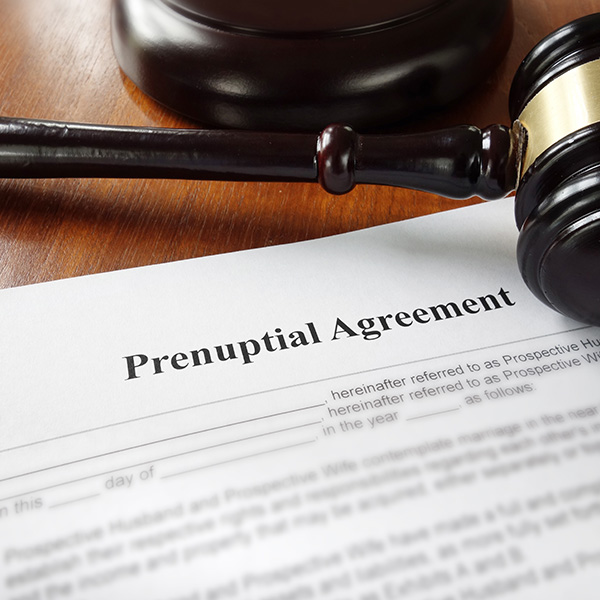Prenuptial and Postnuptial Agreements
Although prenuptial and postnuptial agreements are not yet legally binding in the UK, since the ground breaking case of Radmacher in 2010 the courts have started to take these agreements into account as a factor in their decision making process when considering division of the matrimonial assets.
Recent case law suggests that the courts are struggling to find a balance between granting the parties autonomy over their financial futures and using the court’s discretion to achieve fairness.
In order to ensure the agreement is upheld it must be properly drafted. Both parties must have received or had the opportunity to receive independent legal advice. They must have given full and frank financial disclosure and entered the agreement at least 21 days before the marriage. They should have taken into account any significant changes that are expected in the future, and the agreement must be fair and realistic.

Having said that, the courts have made it clear that the parties cannot, simply by agreement, ignore the jurisdiction of the court.
However, in the interest of fairness, the courts will consider all the circumstances of the case and each case will be judged on its own merit.
Lord Justice Thorpe has said “it does seem to me that the role of contractual dealing, the opportunity for the autonomy of the parties, is becoming increasingly important”.
Prenuptial agreements and postnuptial agreements are not only for the super wealthy, they are also very relevant for couples who bring some money and/or assets to the partnership, people who may be likely to receive an inheritance, or for second marriages where a person may want to protect assets recovered or preserved in a previous divorce.

Taking Prenups Into Account
Read our news article on prenuptial agreements and how the old myth is being dispelled that prenuptial agreements are only for the super wealthy.
The law commission has recommended that nuptial agreements should become legally binding as long as they are on a prescribed form and adhere to certain safeguards. Family lawyers are watching and waiting for further updates.
A prenuptial agreement (or “prenup”) is a legal document made between two people before they get married or enter a civil partnership. It sets out how their assets, property, and finances would be divided if the relationship were to end. While not automatically legally binding in the UK, courts may take a prenup into account during divorce proceedings if it was entered into freely, with full disclosure and legal advice, and is considered fair.
A postnuptial agreement is similar to a prenup, but it is made after a couple has married or entered into a civil partnership. It outlines how assets should be divided if the relationship breaks down. Like prenuptial agreements, postnups are not automatically binding in UK law, but courts may uphold them if they meet certain fairness and procedural standards.
No. It is not possible to enter into a pre-nup after you get married. However, a Post-nuptial Agreement is a wise alternative for married couples, as it sets out how the matrimonial assets will be divided, in the event of a divorce.
While these agreements are not automatically binding under UK law, courts are increasingly willing to uphold them—provided they are fair, both parties entered into them freely, and each received independent legal advice. Full financial disclosure is also essential.
These agreements can be particularly useful for people who have significant assets, own a business, expect to receive an inheritance, or are entering into a second marriage. They can help protect individual interests and clarify financial arrangements in advance.
Nuptial agreements can outline intentions around children, but UK courts always prioritise the welfare of the child. As such, any clauses about child arrangements or maintenance may not be upheld if they conflict with the child’s best interests.
Contact our expert Prenuptial Agreement Solicitors
If you feel like your marriage is going through a ‘rocky’ stage and you want to know how you can protect your assets, please get in touch with one of our Family Law Solicitors for advice today.
Whether you are married or not, we offer a variety of services for all couples. Our services are designed to protect their future and prevent these unexpected battles. Our services include Cohabitation Agreements, Pre-nuptial Agreements, Post-nuptial Agreements, and making a new Will. This will mean there’s no room for misinterpretation or “forget me nots” if a relationship ends.